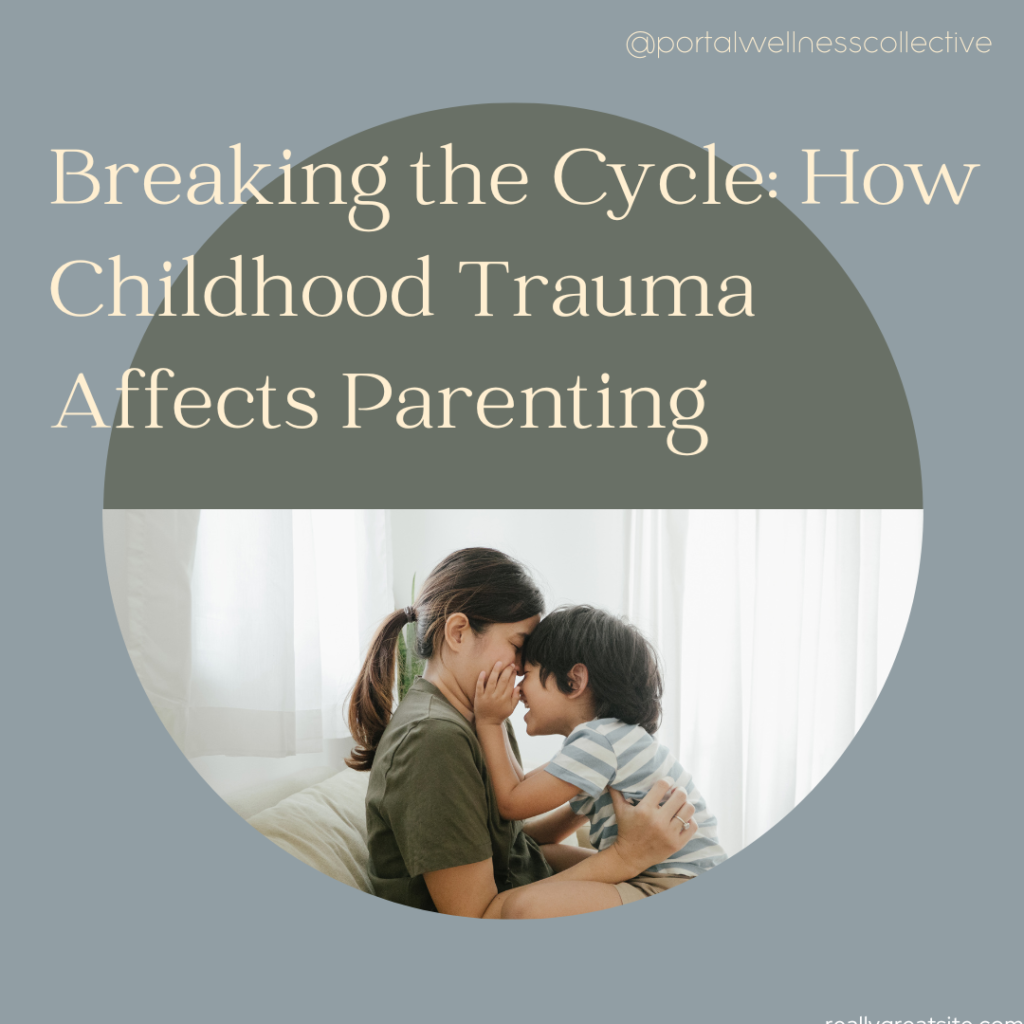Breaking the Cycle: How Childhood Trauma Affects Parenting
Parenting is a profound and transformative journey, shaped by a multitude of factors, including one’s own experiences during childhood. For individuals who have endured childhood trauma, the impact on their parenting style and abilities can be significant. Sometimes parenting can trigger the resurfacing of trauma we did not realize was even there. If this is your experience you can read our blog on when trauma resurfaces.
In this blog post, we will explore how childhood trauma affects parenting, examining the ways in which past traumatic experiences can influence parenting practices, attachment dynamics with children, and the potential for breaking the cycle of intergenerational trauma.
1. Parenting Styles and Trauma Triggers:
Childhood trauma can influence parenting styles in various ways. Some survivors may adopt authoritarian or overprotective parenting styles, driven by the need to control their environment to mitigate potential threats. Others may struggle with inconsistent parenting patterns, reflecting their unresolved emotional wounds from the past.
Here you can learn about some different types of parenting styles and their impact.
2. Attachment and Emotional Availability:
For parents who have experienced childhood trauma, forming secure attachments with their children can present challenges. Trauma can impact emotional availability, leading to difficulties in expressing affection and forming deep emotional connections with their children. On the other hand, it can also create difficulties with enmeshment and healthy boundaries in the parent-child dynamic.

3. Intergenerational Transmission of Trauma:
Childhood trauma can perpetuate the cycle of intergenerational trauma. Unresolved trauma in parents can affect their interactions with their children, potentially exposing them to adverse experiences that mirror their own traumatic past. Some parents might replicate the parenting style or environment they were raised with, other parents might attempt to respond in the opposite direction, which depending, can also have adverse impacts.
Learn more about inter-generational trauma here.
4. Triggers in Parent-Child Interactions:
Parenting can trigger memories and emotional responses related to a person’s own traumatic experiences. Specific situations or behaviors displayed by children may unintentionally evoke unresolved emotions in parents, leading to reactive or unresponsive parenting. This blog outlines some steps to take when you are feeling triggered as a parent.

5. Emotional Regulation and Coping Mechanisms:
The emotional impact of childhood trauma can influence how parents respond to stress and emotional challenges. Some may struggle with emotional regulation, leading to potential outbursts or emotional withdrawal, which can impact parent-child relationships.
6. Healing and Breaking the Cycle:
Recognizing the influence of childhood trauma on parenting is a crucial step toward healing and breaking the cycle of intergenerational trauma. Seeking support through therapy and counseling can help parents process their past trauma and develop healthier coping strategies. Building community and leaning on community support is also important, we were not meant to parent in isolation.
7. Mindful Parenting and Empathy:
Mindful parenting practices can be beneficial for parents who have experienced childhood trauma. Cultivating self-awareness, empathy, and self-compassion can foster healthier parent-child relationships and promote emotional healing.

Just because you have experienced trauma does NOT mean you will be a terrible parent or will traumatize your children automatically. However it does mean that it will be important to cultivate a foundation of self compassion, awareness, regulation and communication skills to navigate how your trauma might come up or impact parenting.
If you are ready to heal from your childhood trauma you can read about what to expect here. When you are ready, our trauma specialists are here to guide you and support in healing from inter-generational trauma, and breaking cycles within your own family.
Childhood trauma can significantly impact parenting, influencing parenting styles, attachment dynamics, and emotional availability. The cycle of intergenerational trauma can perpetuate without awareness and intervention. However, by acknowledging the influence of past trauma, seeking support, and engaging in self-healing, parents can cultivate healthier relationships with their children and work towards breaking the cycle of trauma, offering a brighter and more nurturing future for the next generation.


